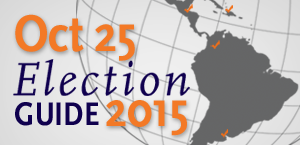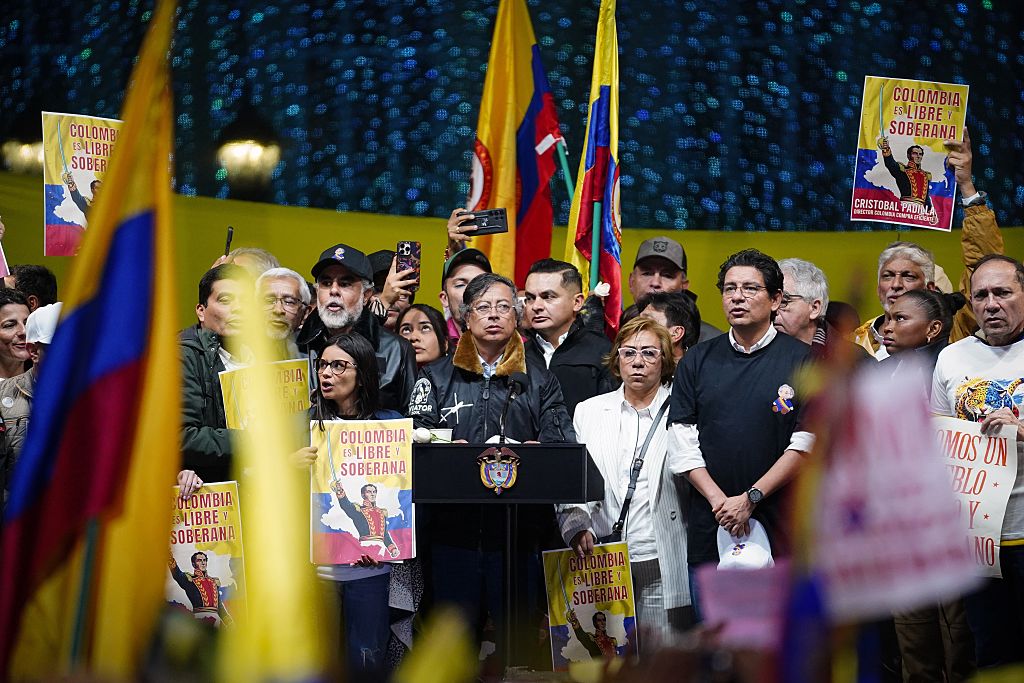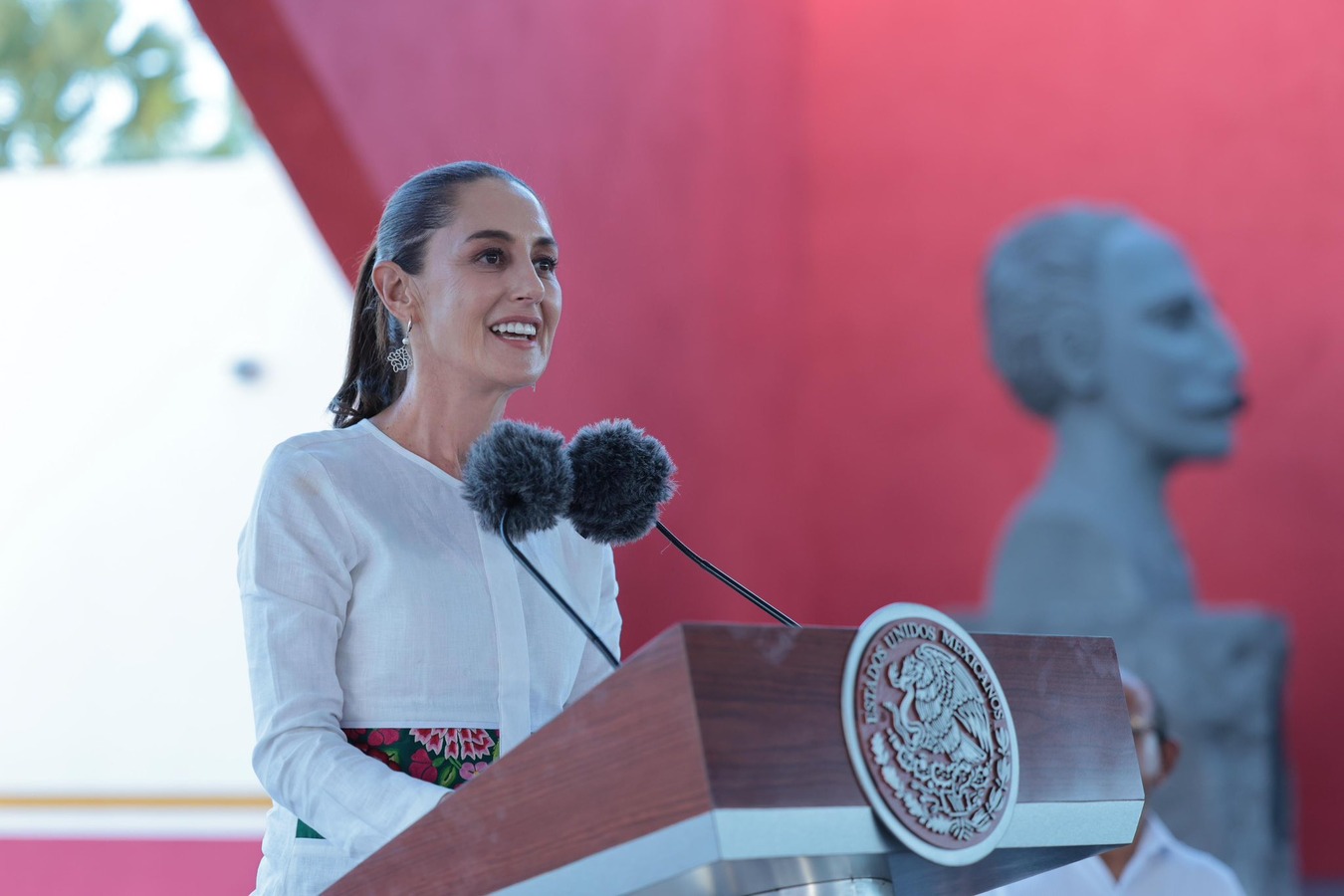Update: Who's Leading the Race for Mayor of Bogota?
Update: Who's Leading the Race for Mayor of Bogota?
The race for mayor of Bogota, often called the second most powerful position in the country, is a nail-biter.
What’s at Stake in These Elections?
On October 25, Colombians will hold regional elections for all the governors, mayors, city council members, deputies, and other local officials across the country’s 32 states and more than 1,100 municipalities. There are over 113,000 candidates on the ballots, many of whom will be elected together on party slates. All candidates will be elected to terms that will run from January 1, 2016 through December 31, 2019. Some 2.8 million Colombians registered to vote for the first time in the run-up to these elections, compared to the nearly 4 million who did before the 2011 regional races; around 15 million people overall are expected to vote. Voting is voluntary in Colombia, and voter participation often does not break 50 percent, even in presidential elections.
All eyes are on the race to replace the controversial Gustavo Petro as mayor of Bogota. With a population of approximately 6.7 million, about one in every eight Colombians lives in the Andean capital, and the mayor’s seat is often called the second most powerful position in the country after the presidency. Petro, a demobilized M-19 guerrilla fighter, rolled out his administration’s hallmark program, Bogota Humana, aimed at social inclusion. While the program, which takes up some 60 percent of his government’s budget, has had some notable achievements in areas like early childhood health, about half of the projects remain unfinished.
Public security is on people’s minds, with 48 percent of bogotanos saying it is the most important issue facing the country today, and transportation is a distant second at 26 percent. And it’s not just about security with rebel groups: Colombians are in some cases more concerned with safe streets. At a debate among top candidates on July 25, participants differed sharply over a proposal to ramp up police presence, in particular transportation security forces, after a series of high-profile violent incidents in taxis and buses this spring and summer. Education, health, unemployment, and poverty round out the rest of voters’ concerns.
Leading in the polls right now are three well-known candidates, all with extensive and varied national experience: Enrique Peñalosa, Clara López, Rafael Pardo.
Who Is Running for Mayor of Bogota?
Enrique Peñalosa Londoño has a tentative lead of the pack at the moment, after forestalling his official entry into the race. A world-renowned urbanist who was born in Washington, DC, Peñalosa was previously mayor of Bogota from 1998 to 2000, and is best known for implementing the city’s TransMilenio bus system, with the first routes established two weeks before the end of his term. This is his fifth campaign for the office: he ran twice in 1991 and 1994 before being elected, and then vied two more times for his former post in 2007 and 2011, coming in second in both races by 16- and 7-point margins, respectively. He then ran for president in 2014 on the Green Party ticket, coming in fifth in the first round of voting with 8.3 percent of the vote. Over the years, Peñalosa has vacillated between political boundaries, running variously with the Green Party, Party of the U, and as an independent. He garnered the support of President Juan Manuel Santos in the 1990s, but in recent years has been aligned with the more hard-line security policies of former President Álvaro Uribe, who endorsed him in 2007 and took a hit when Peñalosa lost by a wide margin. He launched his current campaign as an independent, but formed a coalition called Team Bogota, which gained key backing from the Radical Change Party at the end of July. Automobile-averse, he campaigns frequently on foot or by bike.
Clara López Obregón is the nominee for the left-wing Alternative Democratic Pole party, of which she is also the current party president. If she wins, she would be the first woman popularly elected to the position. The economist and attorney first ran for mayor of Bogota in 1988, but did not win and spent the next decade as a political advisor. In the early 2000s, she served stints in the federal and local Bogota governments. Santos appointed her acting mayor of the capital for six months in 2011 in the wake of a previous mayor’s forced resignation. She was Petro’s running mate in the 2010 presidential elections in which they came in fourth, and she landed in the same spot as the presidential candidate herself in the 2014 race with 15.2 percent of the vote. She’s running on a platform of social inclusion, institutional transparency, citizen security, and infrastructure development. López is a strong advocate for the peace talks with the Revolutionary Armed Forces of Colombia, better known as the FARC, and says her party would block the extradition of demobilized fighters.
Rafael Pardo Rueda heads a coalition of the Party of the U, Liberal, and Look Movement parties. An academic, security and defense expert, and urban planner, he began his career working with municipal governments and also played a key role in the demobilization of the M-19 guerillas. In 1991, he became the country’s first civilian defense minister in more than 40 years. He was later elected senator in 2002 until a presidential run in 2010, in which he came in a distant sixth with 4.4 percent of first-round votes—the Liberal Party’s lowest showing ever at the time. Santos appointed Pardo labor minister during his first term, and also as acting mayor of Bogota for one month in 2013 during which Petro was temporarily removed from office. He is a supporter of the peace talks.
Who’s Leading in the Polls?
Although López led during early months of the race when she began campaigning last year, Peñalosa’s entry this year cut her numbers, and now he leads. While one poll from the third week of July right after the candidates officially filed to run showed the two in a dead heat with Pardo, an August 3 poll showed Peñalosa jumped to 30 percent, while Pardo and López dropped to 19 percent and 14 percent, respectively. López criticized the methodology of the polling firm, Ipsos Napoleón Franco, and accused them of longstanding bias against her. Meanwhile, Francisco “Pacho” Santos, Uribe’s vice president from 2002 to 2010, is holding steady in fourth place with 5 percent to 9 percent support, though he also has the highest unfavorable ratings by far, about double the other lead candidates.
Dissatisfaction with Petro’s administration is hurting López, who is seen as his successor given their past collaborations. The question now is whether candidates will combine forces and narrow the field before the elections, with many looking to a Peñalosa-Pardo alliance, which Peñalosa himself signaled he was open to. But Pardo’s Party of the U rejected an alliance proposed by Radical Change in early August. If the party is already proposing an alliance, said Armando Benedetti, a senator and Pardo ally, “That means Peñalosa isn’t a very strong candidate.”
Learn More
- El Tiempo’s 2015 Elections page
- La Silla Vacía's 2015 Elections coverage
- Websites for Colombia’s National Electoral Council and National Registry
- Colombia Reports’ election coverage and profiles of Bogota mayoral candidates









